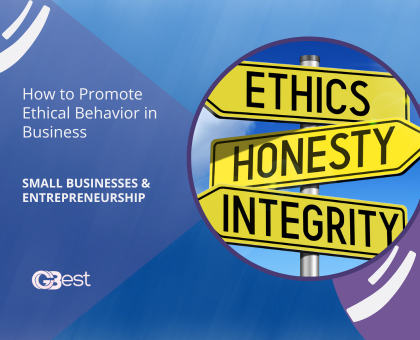In the competitive world of business, the temptation to take shortcuts and engage in unethical practices can be alluring, as they dangle the prospect of attaining quick gains and rapid success. However, succumbing to such practices can lead to severe consequences, potentially jeopardizing the longevity of a business. In this blog, we’ll explore the pros and cons of unethical business practices, shed light on key practices to avoid, and discuss how to identify and steer clear of such approaches.
The Temptation of Unethical Practices:
Running a business is often challenging, with limited resources, financial constraints, and the desire for rapid success. Under these pressures, some individuals may resort to unethical practices to achieve their goals. Here are some common unethical practices that should be avoided:
- Making False Promises: Misleading customers with unrealistic or deceptive claims about products or services.
- Selling Unnecessary Products: Pushing customers to purchase items they don’t truly need or value.
- Delivering Subpar Work: Providing low-quality products or services that do not meet the promised standards.
- Misleading Without Direct Lies: Using misleading tactics to manipulate customer perceptions.
- Hidden Agreements: Engaging in undisclosed agreements or terms that exploit customers or partners.
- Lack of Accountability: Failing to take responsibility for mistakes or poor outcomes.
The Short-Term Gains vs. Long-Term Consequences:
Unethical business practices may yield short-term benefits, such as increased revenue, a surge in customers, or higher profit margins. These gains, however, usually come at a cost.
On the other hand, consider this list of long-term consequences:
- Loss of Empathy: Unethical practices erode a business person’s empathy, hindering their ability to understand and meet customer needs. Building trusting relationships becomes difficult, limiting business growth.
- Impact on Future Earnings: Due to a damaged reputation or lack of trust, repeat business decreases, resulting in reduced revenue over time.
- Negative Word of Mouth: Unhappy customers share their negative experiences, dissuading potential customers from patronizing the business.
- Decreased Referrals: Customers are less likely to refer friends or associates to a business with mediocre or deceptive practices.
Practice these ethical business practices:
Recognizing unethical practices is crucial to ensure a successful and sustainable business. Here are some methods to identify and avoid such practices:
- Practice Empathy: Put yourself in your customers’ shoes and assess if your products or services genuinely meet their needs and expectations.
- Seek Feedback: Encourage honest feedback from customers to identify areas for improvement and potential unethical practices.
- Transparent Communication: Be open and honest with customers, providing them with all the information they need to make informed decisions.
- Conduct Ethical Audits: Regularly review business practices and policies to ensure they align with ethical standards.
- Engage Ethical Advisors: Seek guidance from ethical consultants or mentors who can provide valuable insights and help steer the business in the right direction.
Conclusion:
While unethical business practices may offer short-term advantages, the long-term consequences can be devastating for a business. Maintaining empathy, transparency, and ethical conduct not only ensures the success and sustainability of a business but also contributes to building a positive reputation and fostering trust among customers. By avoiding unethical practices and fostering an ethical business culture, entrepreneurs can create a thriving and respectable enterprise that stands the test of time. Which of these ethical practices s the most important to your business? We would love to hear from you!








